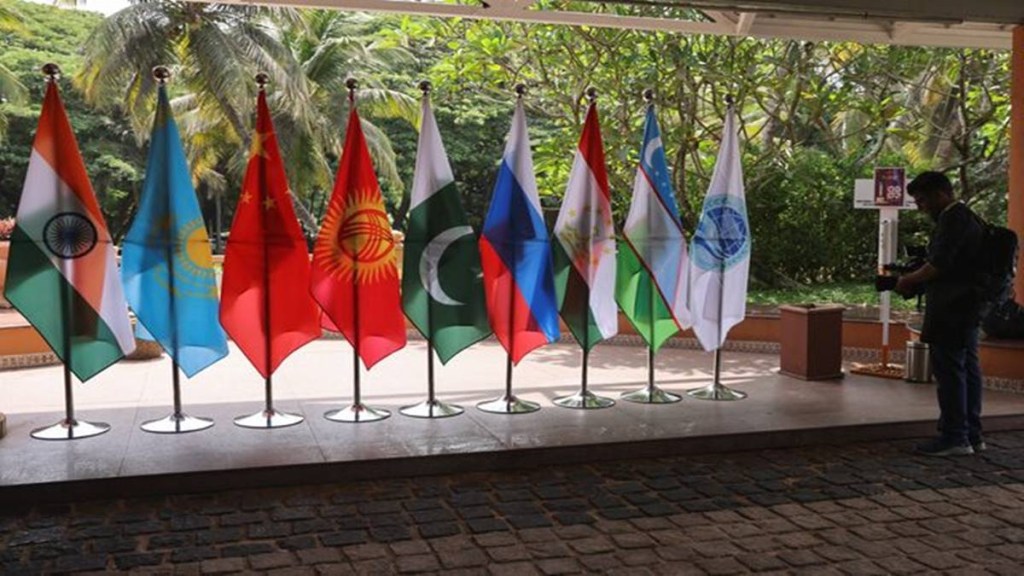The Shanghai Cooperation Organization (SCO) is a Eurasian political, economic, and security alliance that was founded in 2001. It began as the Shanghai Five in 1996, consisting of China, Russia, Kazakhstan, Kyrgyzstan, and Tajikistan, focusing on border demarcation and building mutual trust. The group expanded and evolved into the SCO with the inclusion of Uzbekistan in 2001.
Objectives and Structure
The SCO aims to foster regional stability, combat terrorism, separatism, and extremism, and promote economic cooperation. Its charter outlines principles such as mutual respect for sovereignty, non-interference in internal affairs, equality, and mutual benefit.
The organization has two main permanent bodies:
The SCO Secretariat in Beijing, which handles administrative functions.
The Regional Anti-Terrorist Structure (RATS) in Tashkent, Uzbekistan, focusing on security cooperation and counter-terrorism.
The decision-making process within the SCO is consensus-based, reflecting the principle of equal partnership among member states.
Membership and Observers
The SCO’s membership has grown over time. Initially comprising six countries, it expanded to include India and Pakistan as full members in 2017. The current full members are: China; Russia; Kazakhstan; Kyrgyzstan; Tajikistan; Uzbekistan; India, Iran and Pakistan.
Additionally, the SCO has several observer states and dialogue partners, including countries like Afghanistan, Belarus, Mongolia, and others, which participate in various capacities in the organization’s activities.
Key Areas of Cooperation
Security Cooperation: The SCO places significant emphasis on combating the “three evils” of terrorism, separatism, and extremism. Joint military exercises, intelligence sharing, and coordinated actions against threats are central to this effort.
Economic Collaboration: The organization promotes trade and economic cooperation among member states. Initiatives such as the SCO Development Bank and the SCO Free Trade Area have been proposed to enhance economic integration.
Cultural Exchange: The SCO fosters cultural ties through events, educational exchanges, and joint cultural projects, aiming to strengthen people-to-people connections among member countries.
India’s Entry and Strategic Interests
India’s accession to the SCO in 2017 marked a significant step in its foreign policy, reflecting its interest in engaging with Eurasia. India’s involvement in the SCO is driven by several strategic objectives:
Regional Security: Participation in the SCO enhances India’s ability to collaborate on security issues, particularly in combating terrorism and extremism. The SCO provides a platform for intelligence sharing and joint counter-terrorism efforts.
Economic Opportunities: The SCO offers India access to the resource-rich Central Asian region, which is crucial for energy security and trade. India’s engagement aims to boost connectivity and trade routes, such as the International North-South Transport Corridor (INSTC).
Geopolitical Influence: Membership in the SCO allows India to play a more prominent role in regional geopolitics. It provides a counterbalance to China’s influence in the region and strengthens India’s ties with Russia and Central Asian countries.
Cultural and People-to-People Ties: India leverages the SCO to promote cultural exchanges and enhance its soft power in the region. Initiatives such as the SCO Film Festival and academic scholarships help build cultural bridges.
Challenges
While India’s participation in the SCO presents opportunities, it also faces challenges:
Tensions with Pakistan: The presence of both India and Pakistan in the SCO adds complexity to the organization’s dynamics. Bilateral tensions can sometimes overshadow broader cooperative efforts.
Balancing Relations: India’s engagement in the SCO requires careful balancing of its relationships with both Russia and China. Navigating differing interests and strategic priorities can be challenging.
Institutional Effectiveness: The consensus-based decision-making process can sometimes hinder the SCO’s ability to take swift and decisive actions. This can be a limitation in addressing urgent security or economic issues.

